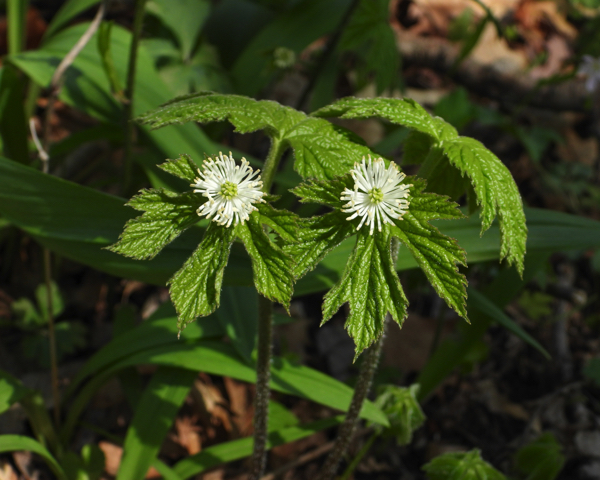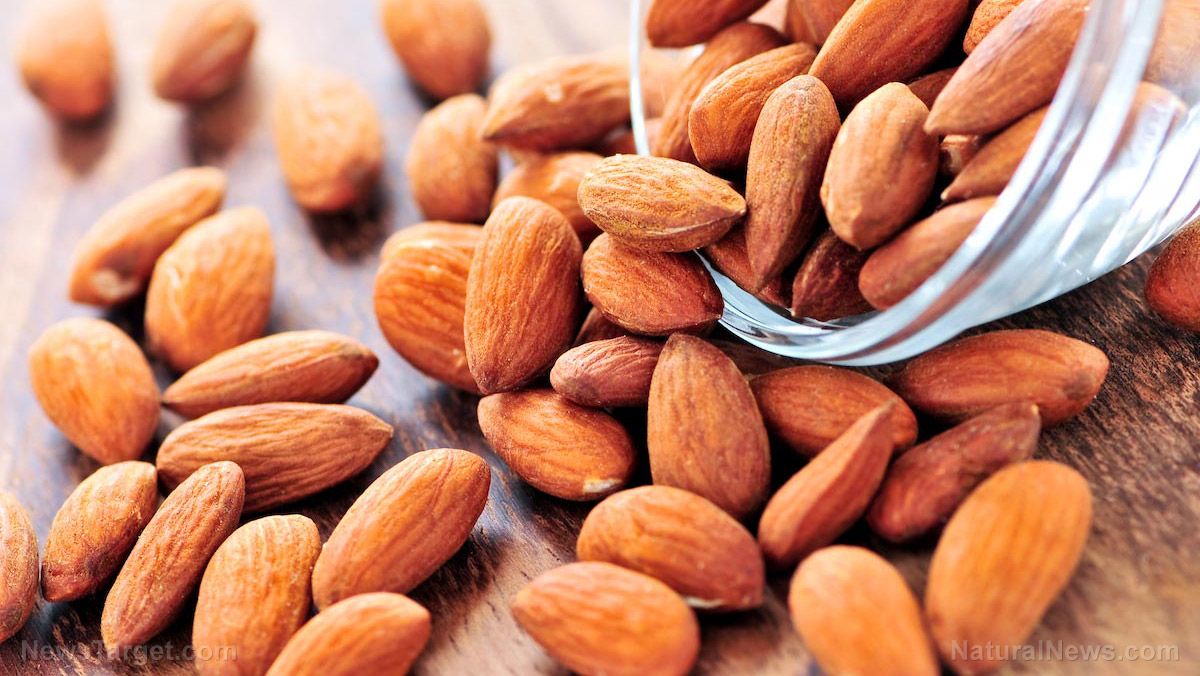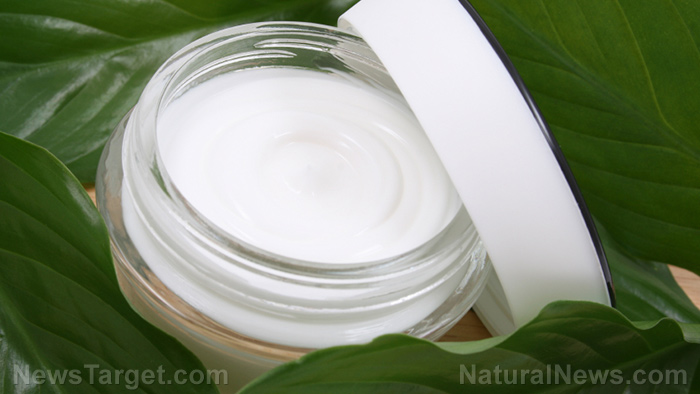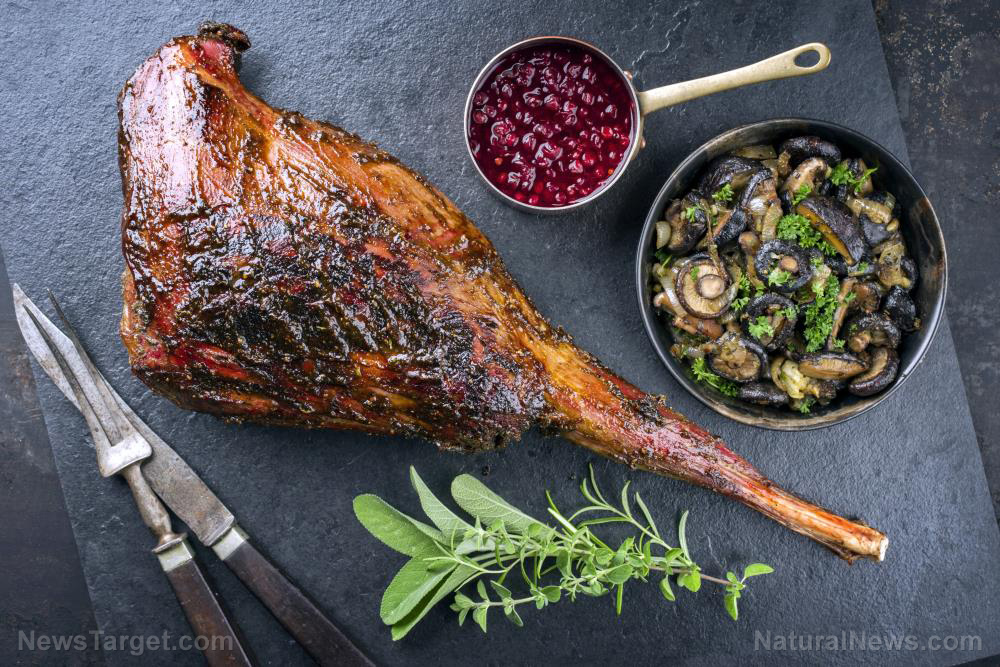Southern ginseng: A traditional Chinese medicine that boosts health and longevity
06/17/2025 / By Ava Grace
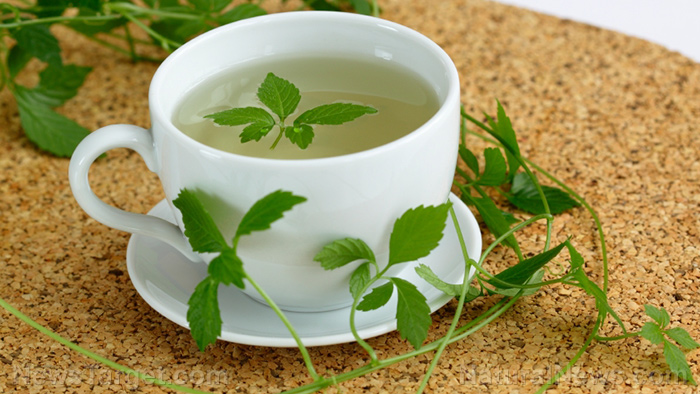
- Southern ginseng (Gynostemma pentaphyllum) has its roots in Traditional Chinese Medicine. Modern scientific interest in southern ginseng began in the 1970s with the discovery of its unique saponin compounds, and it is primarily cultivated in the mountainous regions of southern China.
- Southern ginseng is rich in phytonutrients including gypenosides (structurally similar to ginsenosides), flavonoids, phenolic compounds, amino acids and trace minerals like selenium, zinc and iron that contribute to its health-promoting properties.
- The herb is renowned for its cardiovascular benefits, antioxidant and anti-inflammatory effects, immune system support, stress reduction and potential anti-aging properties, making it a valuable component in wellness regimes.
- Traditionally, southern ginseng is used to treat conditions like fatigue, stress and high blood pressure and is often consumed as a tea. Anecdotal evidence from a Chinese village suggests regular consumption may contribute to longevity due to its life-extending properties.
- Southern ginseng can be incorporated into various dishes, such as green smoothies, iced tea, energy balls, chicken soup and infused honey, offering a versatile way to enjoy its mild, slightly sweet taste and health benefits.
Southern ginseng (Gynostemma pentaphyllum), or jiaogulan, is a climbing vine often referred to as the “herb of immortality.” It has a rich history of use in Traditional Chinese Medicine (TCM) and is celebrated for its myriad health benefits. This article delves into the history, phytonutrient content, medicinal uses and culinary applications of southern ginseng, providing a comprehensive guide for those interested in natural health and wellness.
Historical roots
Southern ginseng’s origins date back to the Ming Dynasty in China, where it was first documented in the “Compendium of Materia Medica” (Bencao Gangmu) by Li Shizhen. However, it wasn’t until the 20th century that modern science began to recognize its potential.
In the 1970s, Chinese researchers identified southern ginseng’s unique saponin compounds – sparking interest in its therapeutic properties. The herb is primarily cultivated in the mountainous regions of southern China, where the combination of climate, soil and altitude creates an ideal environment for its growth. (Related: Poor man’s ginseng found to protect against liver damage.)
Phytonutrient profile
Southern ginseng is a treasure trove of essential nutrients and phytonutrients, including:
- Gypenosides – These saponins are structurally similar to the ginsenosides found in Panax ginseng, giving the herb its “southern ginseng” nickname.
- Flavonoids – Known for their antioxidant properties, flavonoids help combat oxidative stress and inflammation.
- Phenolic compounds – These compounds contribute to the herb’s antioxidant and anti-inflammatory effects.
- Amino acids – These nutrients are essential for protein synthesis and various bodily functions.
- Trace minerals – Southern ginseng contains minerals like selenium, zinc and iron, which are vital for health.
Medicinal uses and health benefits
Southern ginseng is widely used to promote overall health and well-being. Some of its key benefits include:
- Cardiovascular health – Studies have shown that southern ginseng can help lower blood pressure and cholesterol levels, reducing the risk of heart disease.
- Antioxidant and anti-inflammatory properties – The high concentration of flavonoids and phenolic compounds in southern ginseng helps protect cells from damage and reduce inflammation.
- Immune system support – Regular consumption of southern ginseng can boost the immune system, making the body more resilient to infections and diseases.
- Stress reduction – Southern ginseng is an adaptogen, meaning it helps the body adapt to stress. It can reduce cortisol levels and promote a sense of calm and well-being.
- Anti-aging effects – The herb’s antioxidant properties may help slow down the aging process by protecting cells from damage.
Traditional and modern uses
In TCM, southern ginseng is used to treat a variety of conditions including fatigue, stress and high blood pressure. It is often consumed as a tea, which is prepared by steeping the dried leaves in hot water. The leaves can also be ground into a powder and added to smoothies, supplements or other beverages.
One fascinating anecdote about southern ginseng comes from a village in southern China, where residents have a tradition of drinking southern ginseng tea daily. According to local lore, the village has a significantly higher number of centenarians compared to surrounding areas, attributed to the regular consumption of this herbal tea. This story, while anecdotal, highlights the longstanding belief that southern ginseng has life-extending properties.
Culinary applications and recipes
Southern ginseng’s mild, slightly sweet taste makes it a versatile ingredient in the kitchen. Here are a few recipe ideas to try:
- Southern ginseng green smoothie – Blend fresh greens, a banana, a tablespoon of jiaogulan powder and a cup of almond milk for a refreshing and nutrient-packed breakfast.
- Southern ginseng iced tea: Steep jiaogulan leaves in hot water, then cool and serve with a slice of lemon and a sprig of mint for a revitalizing summer drink.
- Southern ginseng energy balls – Mix jiaogulan powder with dates, nuts and seeds, roll into balls and refrigerate for a healthy, energy-boosting snack.
- Southern ginseng chicken soup – Add jiaogulan leaves to chicken broth for a comforting and health-promoting soup.
- Southern ginseng-infused honey – Steep jiaogulan leaves in warm honey for a few hours to create a sweet, medicinal spread for toast or tea.
Southern ginseng, with its rich history and numerous health benefits, is a powerful addition to any wellness regime. Whether consumed as a tea, supplement or culinary ingredient, this herb offers a natural and effective way to support cardiovascular health, boost the immune system and promote overall well-being.
This story is not intended to replace or supersede professional medical advice. Always consult with a qualified naturopathic physician for personalized advice about your specific health situation or concern.
For more fascinating insights into superfoods and their natural wonders, visit NaturalNews.com. It’s a treasure trove of articles that will deepen your understanding of the healing power of food.
If you’re into cutting-edge technology with a health twist, try Brighteon.ai. Created by Mike Adams, the Health Ranger, this AI model is a free download that you can run on your own device. It’s all about sharing knowledge freely and bypassing the filters of censorship.
And if you’re looking for a place to openly discuss everything from nutrition to natural remedies without any holds barred, Brighteon.com is your go-to spot. Don’t forget to check out their free speech social media platforms, Brighteon.IO and Brighteon.social, where the conversation is always lively and uncensored.
Watch this video about the benefits of jiaogulan and how to take it correctly.
This video is from the Holistic Herbalist channel on Brighteon.com.
More related stories:
From weeds to wellness: The hidden superfoods in your backyard.
Health Ranger Report: Exploring biblical foods and herbs for HEALING.
Sources include:
Submit a correction >>
Tagged Under:
alternative medicine, Chinese medicine, health science, herbal medicine, Herbs, jiaogulan, longevity, natural cures, natural health, natural medicine, organics, phytonutrients, plant medicine, remedies, southern ginseng
This article may contain statements that reflect the opinion of the author









